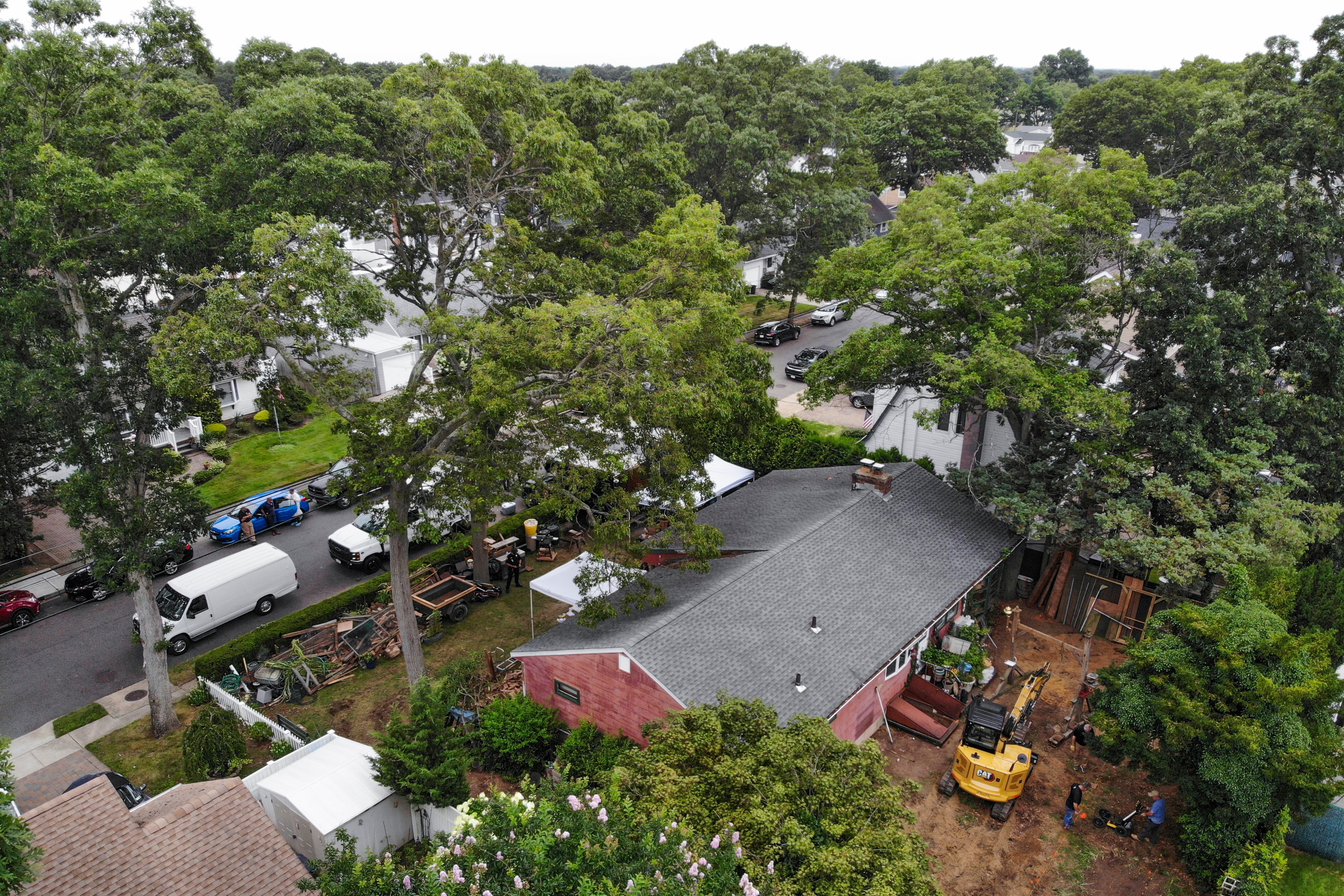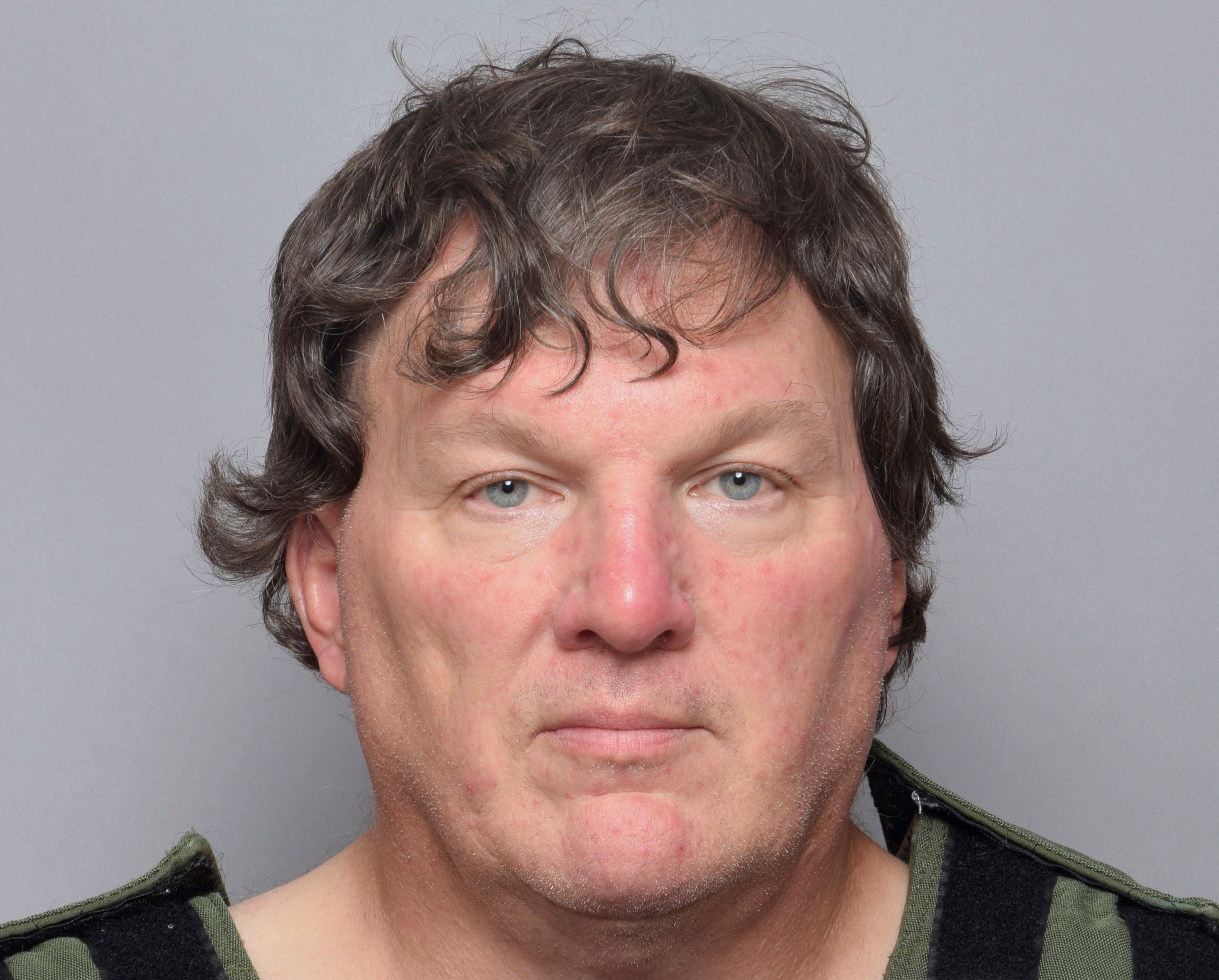Gilgo Beach serial killer suspect’s first words after arrest revealed
Police believe at least some of the murders took place inside the home Rex Heuermann shared with his family in Massapequa Park
The Gilgo Beach serial killer suspect had a somewhat blase reaction when a group of plain-clothes police officers swooped on him in the heart of a busy Manhattan street and arrested him in connection to a chilling series of cold case murders, according to authorities.
Rex Heuermann was taken into custody on 13 July as he left the office of his architecture business in midtown Manhattan.
He was charged with the murders of three of the so-called “Gilgo Four” – Megan Waterman, Melissa Barthelemy and Amber Costello.
He is also the prime suspect in the murder of Maureen Brainard-Barnes – who was last seen alive in early June 2007 in New York City.
Suffolk County Police Commissioner Rodney Harrison has now revealed the accused serial killer’s first words when officers descended on him more than 13 years after the victims’ bodies were found discarded along Gilgo Beach, Long Island.
Mr Harrison told NBC News that the 59-year-old married father-of-two was dismissive of the allegations – but then quickly lawyered up.
“He very much said, ‘What am I here for? I don’t know nothing of what you’re talking about,’” he said.
“He asked for a lawyer – and that was the end of the conversation,” he added.
As the 59-year-old was processed into Suffolk County Jail on a string of murder charges, sources told CNN he did have another chilling question – this time about his newfound notoriety.
“Is it in the news?” he asked.
The police chief previously said that the decision was made to arrest Mr Heuermann in Manhattan in the hope that the suspected serial killer would confess to his alleged crimes on the long drive up to Long Island.
However, this plan didn’t pan out and the Long Island native has insisted his innocence and so pleaded not guilty to the charges.
The details of his demeanour come as investigators were spotted digging up the backyard of his home amid reports that at least one victim may have been killed at the property.
Search teams carried out what was described as a “major excavation” on Monday at the one-storey home in Massapequa Park, where the architect lived with his wife and two adult children.
Cadaver dogs and a ground-penetrating radar machine were brought in to scour the ground before excavators were seen digging up the earth with a backhoe.
At one point, a huge wooden deck was dismantled and a blue tent was erected to shield the search from view.
In addition to digging up Mr Heuermann’s backyard, investigators searched a huge walk-in vault with a “big iron door”. They described the search as “fruitful”.
Mr Harrison said that they believe at least some of the murders took place inside the home but are unable to confirm this at this time.

Mr Heuermann’s wife and two children were out of town at the time of each of the three murders he is charged with, according to court documents.
In the 11 days since Mr Heuermann was arrested in connection to the infamous serial killer case, investigators have been searching for evidence tying him to the murders including any trophies taken from the victims.
Police said that they are “confident” they will soon be able to charge him with the fourth murder.
The “Gilgo Four” were all found in December 2010 within one-quarter mile of each other, bound by belts or tape and some wrapped in burlap – their bodies dumped along Gilgo Beach.
Court records show that Mr Heuermann was linked to the killings through a tip about his pickup truck, a stash of burner phones, “sadistic” online searches, phone calls taunting victims’ families, his wife’s hair found on the victims’ bodies – and a pizza crust.
The first piece of the puzzle came when a witness in the Amber Costello case revealed details about a vehicle that a client was driving when she was last seen alive.
Costello, who worked as a sex worker, was seen alive on the evening of 2 September 2010 when she left her home in West Babylon. A witness said she had gone to meet a client who was driving a first-generation Chevrolet Avalanche.
Last year, a registration search showed that local man Mr Heuermann owned a first-generation model of the truck at the time of Costello’s disappearance. He also matched the witness’ description of the man believed to be the killer: a large, white “ogre”-like male in his mid-40s, around 6’4’ to 6’6” tall, with “dark bushy hair,” and “big oval style 1970’s type eyeglasses”.
The discovery of the car led investigators to hone in on Mr Heuermann including executing 300 subpoenas, search warrants and other legal processes to obtain evidence to determine his potential involvement in the killings.
Among this was Mr Heuermann’s alleged use of burner phones, with prosecutors saying that he used burner phones to contact the three women and arrange to meet them at the time when they went missing.

He also allegedly took two of the victims’ cellphones – and used one to make taunting phone calls to one of their families where he boasted about her murder, court documents state.
Mr Heuermann’s DNA was found on one of the victims, while his wife’s hair was found on three of the four women he is connected to.
His arrest comes after the horrific serial killer case has captured the nation’s attention for more than a decade.
The Gilgo Beach murders had long stumped law enforcement officials in Suffolk County who believed it could be the work of one or more serial killers who targeted sex workers and dumped their bodies along the remote beaches on Ocean Parkway.
The case began in May 2010 when Shannan Gilbert vanished after leaving a client’s house on foot near Gilgo Beach.
She called 911 for help saying she feared for her life and was never seen alive again.
During a search for Gilbert in dense thicket close to the beach, police discovered the remains of another woman.
Within a matter of days, the remains of three more victims were found close by.
By spring 2011, the remains of a total of 10 victims had been found including eight women, a man, and a toddler. Police have long thought that it could be the work of one or more serial killers.
Gilbert’s body was then found in December 2011. Her cause of death is widely contested with authorities long claiming that it is not connected to the serial killer or killers but that she died from accidental drowning as she fled from the client’s home.
However, an independent autopsy commissioned by her family ruled that she died by strangulation and her mother believes she was murdered.
Like Gilbert, most of the victims targeted were sex workers, while some are yet to be identified.
As well as extensively searching Mr Heuermann’s home in Long Island, officials are probing other locations connected to the accused murderer including storage units two miles away in Amityville.
Meanwhile, law enforcement agencies are also looking into unsolved murders and missing persons cases all across America including in Las Vegas, South Carolina and Atlantic City.




